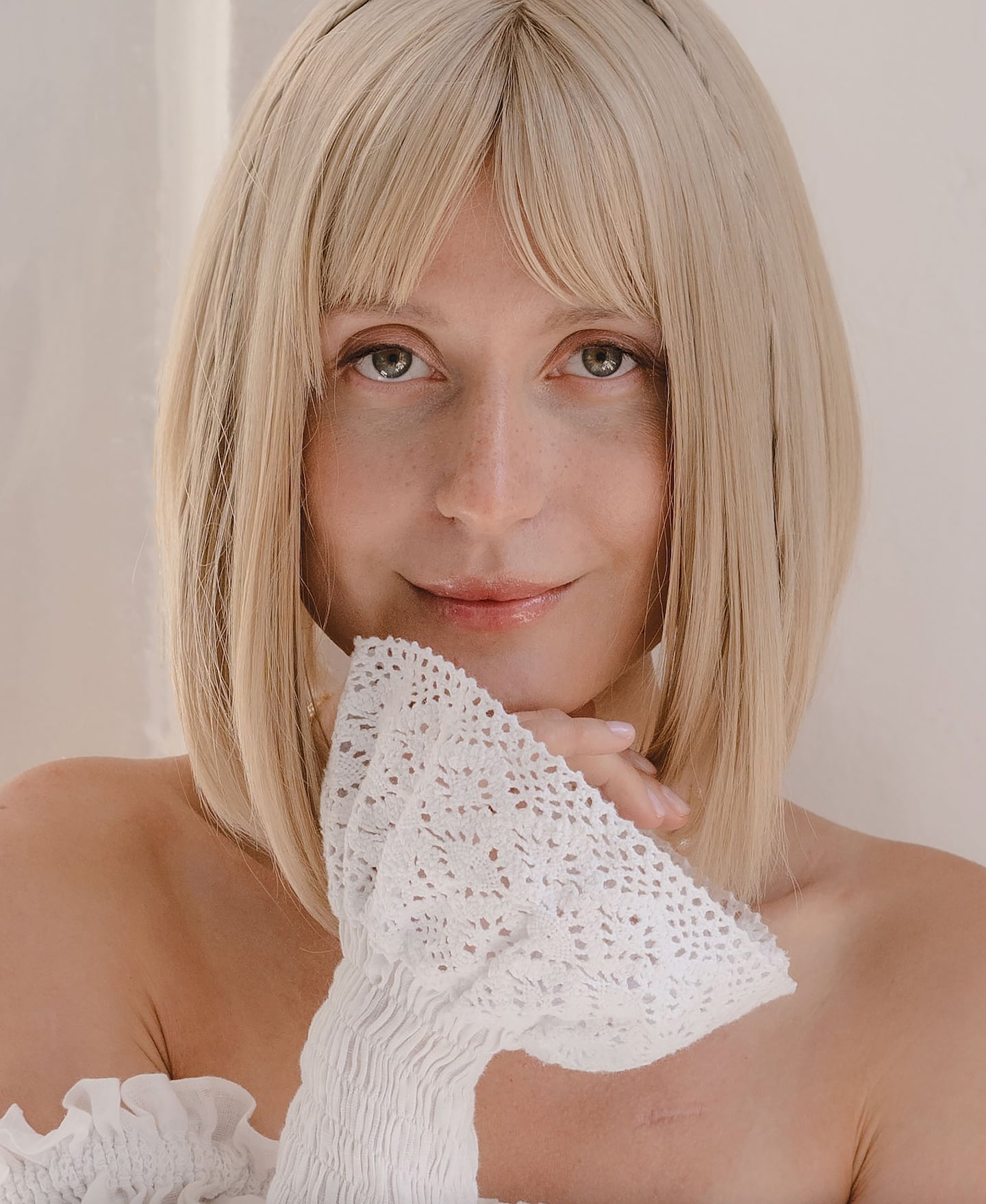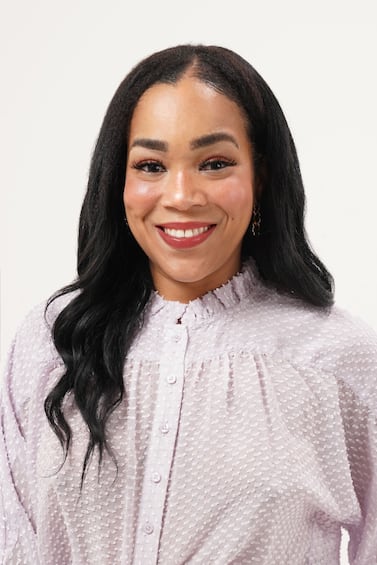
The Business of Fashion
Agenda-setting intelligence, analysis and advice for the global fashion community.

Agenda-setting intelligence, analysis and advice for the global fashion community.

When Alina Mehrle completed eight rounds of chemotherapy for breast cancer four years ago, the 30-year-old architect was mortified by her skin, which the treatment had made thin and crepe-like in appearance.
“The damage was extreme and I didn’t recognize myself,” Mehrle said. “A [cancer charity] sent me a care package that had a tube of red lipstick … and [I thought] ‘What am I going to do with this?’”
As Mehrle was recovering from the psychological and physical effects of cancer and chemotherapy, her oncologist introduced her to cryotherapy, a treatment that uses freezing or near-freezing temperatures to rejuvenate the skin. The experience inspired her to create Ameōn, a skin care brand offering “skin-calming” serums, a “holy cream” facial moisturiser and “frozen essence” ice cubes for at-home facials. Products in the five-item range, launched this year, are all meant to heal the sort of skin damage associated with chemotherapy and radiation, such as redness, thin and peeling skin, photosensitivity and rashes — although it’s not marketed exclusively to the group.
Millions of women and men around the world are diagnosed with cancer each year — in 2022, an estimated 1.9 million will be in the US alone, according to cancer.gov. Skin damage is a frequent side effect of the often-recommended treatment plan of chemotherapy, radiation and immunotherapy drugs. Few beauty brands, however, have jumped at the opportunity to create skin care for this group.
ADVERTISEMENT
But targeting cancer survivors can be a challenging prospect for brands, which must contend with ethical and scientific questions about everything from product formulations and ingredient toxicity to moral concerns about whether their marketing exploits a vulnerable consumer group. From a business standpoint, billing oneself as a go-to product for cancer patients can result in revenue-growth limitations, too.
Still, a handful of companies are latching onto the opportunity and building a framework that other beauty brands could replicate down the line. Two of Ameōn’s next set of product offerings will specifically target cancer patients dealing with skin issues after chemotherapy, and L’Oréal-owned La Roche-Posay, among the first beauty brands to embrace the “for cancer patients” label, has recently rolled out “stamps” that will appear on products to indicate “it’s been tested by cancer patients and it improved their skin comfort,” said Benjamin Brunschwig, La Roche-Posay’s sustainability director.
“We have been scientifically investigating to better understand the topic … we are publishing research and we are conducting studies with cancer patients to find out what’s effective,” he said.
Going after cancer survivors directly can be an expensive business proposition. For larger companies like La Roche-Posay, millions of dollars in investment goes into the research and development of products that it can safely market directly to cancer patients.
Research teams may be spearheaded by doctors and pharmacists, including dermatologists with experience treating cancer patients, such as Dr. Delphine Kerob, the brand’s scientific director, who helps the brand identify safe and effective ingredients.
“[You want] ingredients like shea butter, glycerifn, aqua posae filiformis and niacinamide to improve skin barrier, soothe the skin and add anti-inflammatory properties [that] preserve a diverse skin microbiome,” she said.
At the same time, products aimed at cancer patients should steer clear of ingredients that are astringent or acidic “like glycolic or lactic or salicylic” and certain “potent essential oils,” said Shelly Marshall, an esthetician, registered nurse and founder of the skin care brand Beauty Shamans Skincare. Some moderately priced, dermatologist-endorsed drug store brands — like Aveeno, Cetaphil and Aquaphor — may be good enough to soothe and help protect some cancer patients’ skin while in treatment and thereafter, experts say.
But even companies that develop products that are safe and effective for cancer patients may avoid marketing them that way out of fear it could limit their business growth, Marshall said.
ADVERTISEMENT
“Unfortunately, it boxes them in from a business perspective and laypeople then don’t want to use that product because they think it’s only for that demographic,” she said.
There are also smaller start-ups, like Jennifer Young’s Beauty Despite Cancer, Lindi Skin and Violets are Blue — often birthed out of a founder’s own cancer diagnosis — that create products specifically for cancer patients and market to them directly. Meanwhile, retail platforms like The C-List — a website that curates and sells beauty products it says are safe for cancer patients — are making it easier for those with the disease to find recommendations.
Beauty brands that want to better engage with the cancer community must have a comprehensive plan that drives human impact as much as critical business outcomes, said Brunschwig.
“It’s really important for a company to show that we are going beyond business and beyond our products,” he said.
Like many of its counterparts, La Roche-Posay donates cleansers, moisturisers and sunscreen to organisations like the American Cancer Society — items that may go into care packages like the one Mehrle received. But the brand also donates money to fund the non-profit’s research and partnered with the group to create educational resources, including a cancer research library and a skin care guide for those living with the disease and their caregivers.
Subscribers to Ameōn’s emails will often receive messages with subject lines like “Check Your Boobs,” containing personalised messages from Mehrle offering advice on early detection of breast cancer. The brand’s non-profit arm, Ameōn Cares, partnered with the Breast Cancer Research Foundation to create and gift non-fungible tokens (or NFTs) as a way to incentivise charitable donations instead of typical promotional swag. On their websites, Violets are Blue and Beauty Despite Cancer offer educational resources to cancer patients and links to donate to cancer nonprofits.
“This is a commitment with also a lot of investment to understand the issues,” said Kerob. “This is not a one shot point and it’s not also aimed to just make business. … it’s to improve the patient’s quality of life and journey when they undergo such a difficult time.”
As more dermatologists launch their own skin care brands, simply slapping an MD-approved label on a product isn’t enough to win consumer approval.

Sheena Butler-Young is Senior Correspondent at The Business of Fashion. She is based in New York and covers workplace, talent and issues surrounding diversity and inclusion.
The surfing legend, a vocal opponent of chemical-based sun protection, is launching his own line of natural skincare products this week.
While light on obvious social stunts, the 2024 Met Gala still had its share of trending beauty moments this year.
TikTok has birthed beauty trends with very little staying power. Despite this reality, labels are increasingly using sweet treats like glazed donuts, jelly and gummy bears to sell their products to Gen-Z shoppers.
This month, BoF Careers provides essential sector insights to help beauty professionals decode the industry’s creative landscape.